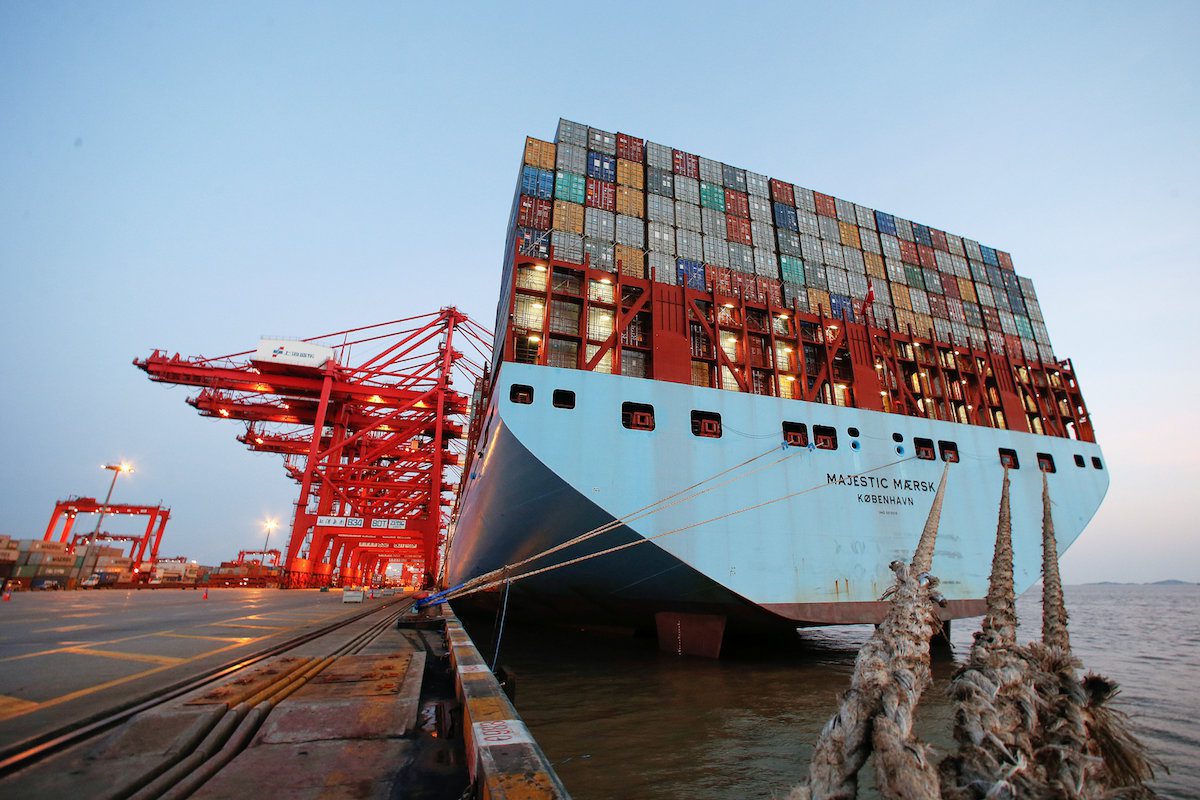The Maersk’s Triple-E giant container ship Maersk Majestic, one of the world’s largest container ships, is seen at the Yangshan Deep Water Port, part of the Shanghai Free Trade Zone, in Shanghai, China, September 24, 2016. Picture taken September 24, 2016. REUTERS/Aly Song

By Chris Bryant
(Bloomberg Gadfly) — For many folks, 2016 has been a year to forget, and the shipping industry is no exception.
But looking ahead A.P. Moller-Maersk A/S is determined to put a positive spin on things — maybe too positive.
On Tuesday chief executive Soren Skou updated investors on the Danish’s conglomerate’s new strategy, which involves separating its energy activities from the transport and logistics businesses, so it can focus on the latter.
His aim is to grow the transport business, but right now the separation plan looks a little odd: Maersk’s profitable oil business stands to benefit from a rally in oil prices, triggered by an OPEC deal to curb global inventories.
In contrast, the container shipping business is set to make a loss this year due to a surplus of new ships that has caused global shipping rates to tumble. (Since 2012 Maersk Line’s average freight rate has declined almost 12 percent a year).
So it’s hard to escape the feeling that Skou’s betting the ranch on an industry whose performance has lately been abysmal and whose prospects look pretty modest at best.
True, Maersk Line’s cost-cutting zeal has helped it weather the storm pretty well — it’s losing less money than its rivals, which is something.
By better integrating the various Maersk transport businesses there’s potential for more savings. The recent improvement in freight rates should also help. Meanwhile, rising oil prices should help Maersk obtain higher prices for its oil assets should it choose to sell them.
Still, Maersk’s growth ambitions remain a worry. It said Tuesday it aims to replace the roughly $10 billion of lost energy sales (one quarter of the total) with expansion in transport and logistics.
The acquisition of Hamburg Sued, announced this month (the price wasn’t disclosed), accounts for more than half of that target but integrating it won’t be straight forward. Maersk’s last big deal — the $2.6 billion purchase of P&O Nedloyd in 2005 — didn’t turn out so well, when a big chunk of the acquired market share vanished.
The overarching problem is that, unlike oil, there isn’t a shipping cartel that’s poised to coordinate industry-wide action to quickly remove surplus capacity from the market.
Consolidation, scrapping and mothballing of ships are all picking up, but there’s still a large number of ships awaiting delivery (Maersk’s existing orders alone are equivalent to 12 percent of its current shipping fleet).
Clearing the surplus will therefore take time — even in 2022 Maersk’s expectation is that available shipping capacity will exceed required supply. Overcapacity is also increasing in its container terminal business.
It shouldn’t expect any help from governments either. Although Donald Trump’s election may spur economic growth in the U.S., his bear-bating of China could exacerbate trade tensions and new tariffs could cut demand for shipping goods by sea. If this all leads to a global trade war Maersk’s expansion plans mean it will have even more to lose.
One upside from Maersk’s past splurge on new ships and container terminals is that it can now afford to slash capital expenditure, which should help support profits.
Skou is therefore confidently targeting an average return on invested capital of 8.5 percent over the cycle, compared to the 7 percent return the shipping assets have achieved since 2010.
However, cutting new capital spend is one thing; generating higher returns from the existing shipping assets will be quite another.
Although the industry will doubtless be glad to see the back of 2016, for Skou the hard work is just beginning.
This column does not necessarily reflect the opinion of Bloomberg LP and its owners.
© 2016 Bloomberg L.P

 Join The Club
Join The Club











